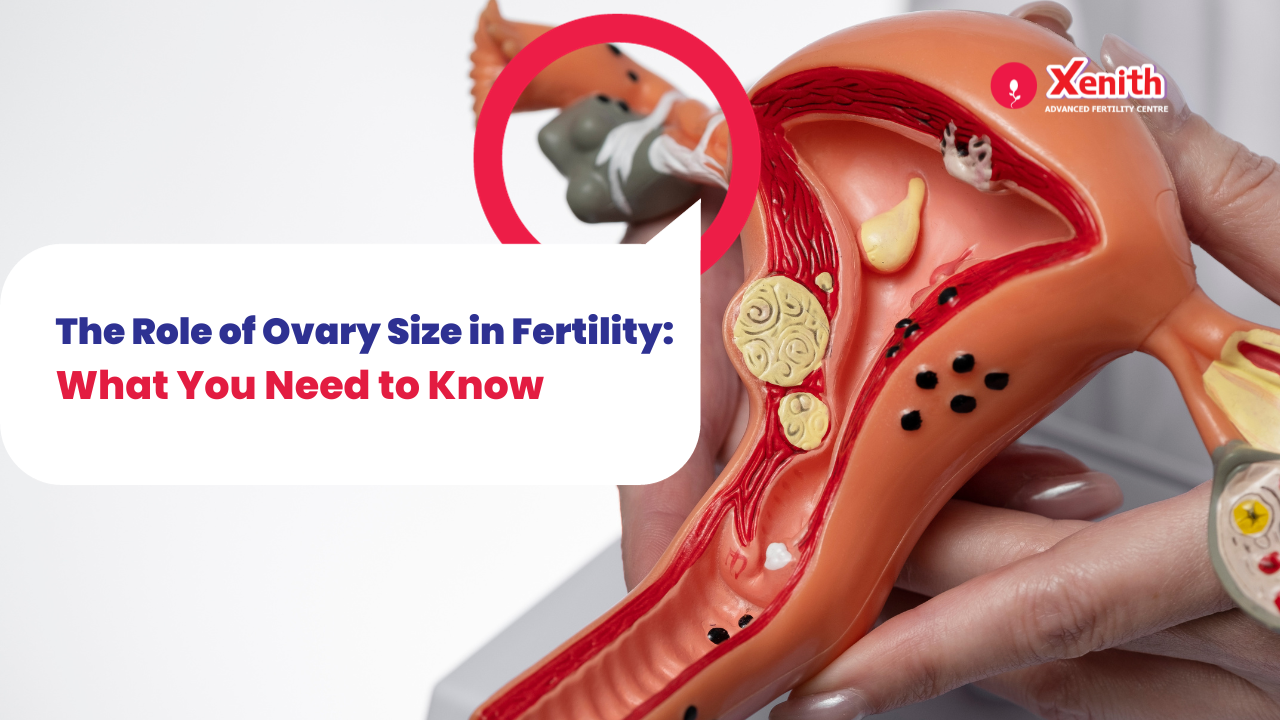Understanding the Normal Size of Ovary in cm
The female reproductive system includes essential organs such as the vagina, cervix, uterus, and ovaries. The ovaries, two small, oval-shaped organs located on either side of the uterus, play a crucial role in reproduction. Not only do they produce and release eggs, but they also secrete vital hormones like estrogen and progesterone.
But, what is the normal size of ovary in cm? On average, a healthy ovary is approximately 2.0 cm in width, 3.5 cm in length, and 1.0 cm in thickness. However, ovarian size can vary due to several factors like age, health conditions, and hormonal changes.
Factors Affecting Average Ovary Size in cm
The size and volume of the ovaries can fluctuate throughout a woman’s life. At the age of 2, the average ovary volume is about 0.7 ml, while at 20 years old, it peaks at 7.7 ml. After this, the volume starts to decline, and by the time a woman reaches menopause, the average volume is around 2.8 ml.
There are other factors that can influence the average ovary size in cm, such as:
- Pregnancy: The ovaries may temporarily increase in size due to hormonal fluctuations.
- Ovulation: Ovaries slightly enlarge during ovulation, a natural part of the menstrual cycle.
- PCOS (Polycystic Ovary Syndrome): This hormonal disorder can cause the formation of multiple cysts, leading to enlarged ovaries.
- Ovarian cysts or tumors: These growths can increase ovarian size.
- Endometriosis: Tissue from the uterine lining can grow on the ovaries, creating cysts and increasing ovarian size.
How to Measure Ovary Size in cm
There are several ways to measure and monitor the average size of ovary:
- Blood Tests: Hormonal tests, like those measuring Anti-Müllerian Hormone (AMH) levels, can indicate ovarian reserve or the number of eggs present in the ovaries.
- Physical Exam: A doctor can palpate the ovaries during a routine pelvic exam.
- Ultrasound: The most common method to measure the size of the ovary is through a transabdominal or transvaginal ultrasound. This imaging tool not only shows the dimensions of the ovaries but also checks for cysts, tumors, or other abnormalities.
- Laparoscopy: In some cases, a doctor may recommend a laparoscopy, a minimally invasive procedure, to take a closer look at the ovaries.
Does Ovary Size Affect Fertility?
The size of the ovary is often associated with its function. A smaller ovary size may indicate a lower ovarian reserve, meaning fewer eggs are available, potentially decreasing the chances of conception. On the other hand, enlarged ovaries could signal conditions like PCOS or ovarian cysts, which may also impact fertility.
Improving Ovarian Health: What You Can Do
Maintaining the normal ovary size in cm is just one aspect of ovarian health. To promote overall ovarian health, consider these lifestyle tips:
- Balanced Diet: Eat plenty of fruits, vegetables, and whole grains while limiting processed and sugary foods.
- Manage Stress: Stress can negatively affect fertility. Practices like yoga, meditation, and deep breathing exercises may help.
- Exercise Regularly: Engaging in moderate exercise can improve circulation and support reproductive health.
- Avoid Smoking and Alcohol: Smoking and excessive alcohol consumption can impair ovarian function.
- Take Supplements: Consider taking supplements like folic acid to support ovarian and reproductive health.
Conclusion: Monitoring the Ovary Size in cm for Better Health
While the normal size of ovary in cm can offer insights into reproductive health, it’s essential to focus on maintaining healthy ovaries and ensuring good egg quality. Regular check-ups and professional guidance from fertility experts can help you understand more about your ovarian health.At Xenith Advanced Fertility Centre, we can help you learn more about your fertility and ovarian health. Feel free to contact us if you have any concerns or want to schedule a consultation.



